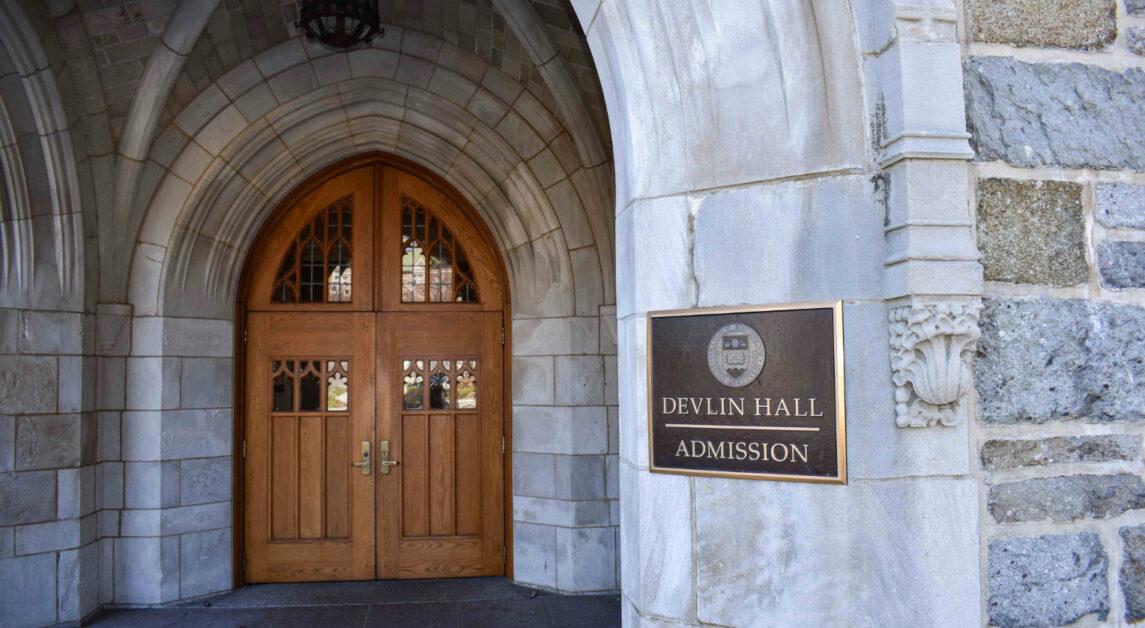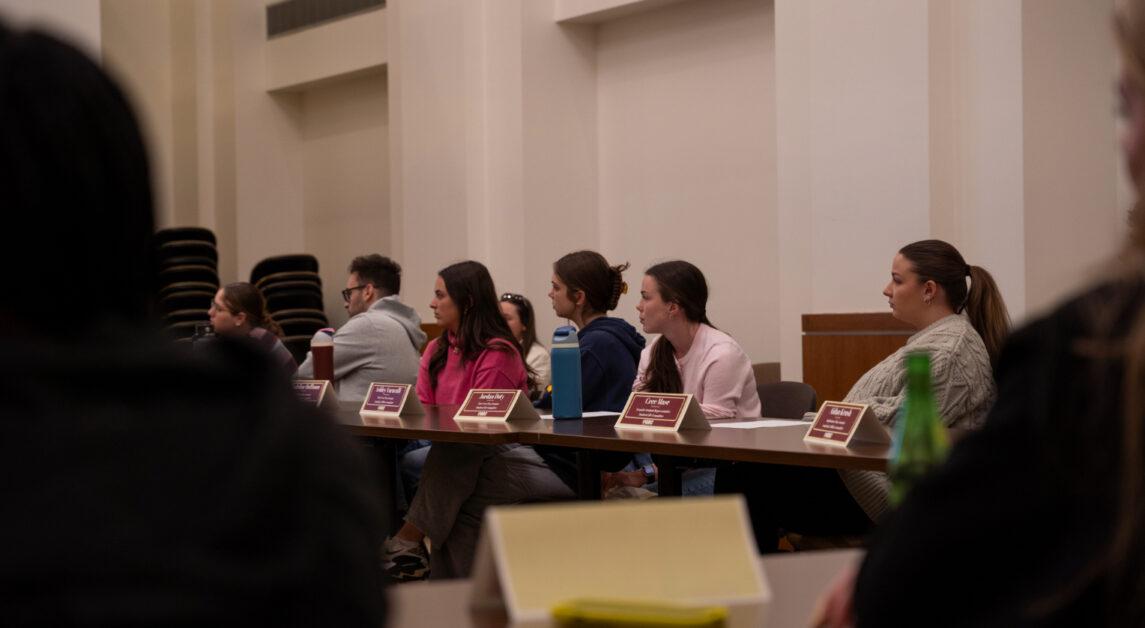After the spring 2014 semester, Boston College will no longer offer online classes as a part of Semester Online. The Online Consortium hosted by online provider 2U has dissolved its Semester Online program following a vote of the Arts & Sciences Faculty at Washington University in St. Louis. The ultimate decision to end the program was made jointly by the Consortium schools and 2U.
This pilot program was initially started to gather information about online education, and when Washington University decided to opt out, it was unclear if continuing the program would yield more worthwhile information, said Chief of Staff in Boston College’s Office of the Provost Anita Tien.
2U, which was founded in 2008, is an education technology company that partners with universities around the world to bring their classes online. The Online Consortium the company formed with BC also included Brandeis University, Emory University, Northwestern University, UNC, Trinity College Dublin, the University of Melbourne, Notre Dame, Wake Forest University and Washington University in St. Louis.
Courses are divided into 80 minutes of prerecorded lectures and one live discussion group each week. The cancellation of the program will have no impact on students who are taking the courses now or who are enrolled for the summer semester, Tien said.
This semester, BC is offered the course How To Rule The World, taught by political science professor Robert Bartlett, and Vietnam: The War That Never Ends, taught by history professor Seth Jacobs. This summer, BC will offer sociology and history course Eco-Challenges and Sustainable Solutions, taught by professors Juliet Schor and Prasannan Parthasarathi, and forensics course Violent Crimes: Forensics and Victimology, taught by Ann Burgess.
Although Bartlett’s experience working with Semester Online was positive, he found in-class teaching to be far superior to online. Despite Semester Online’s effort to imitate an in-class lecture, his style of teaching did not lend itself well to the online tools, he said.
“Although Semester Online tried its best to imitate the classroom experience, complete with live video discussion sections that met once a week, I generally found the medium to be an obstacle to be overcome rather than a help in teaching,” Bartlett said. “I do not rely at all on visual aids of any kind, and classes that do might be better suited to the online tools.”
Despite feelings that an in-person course is better, the Online Consortium was a good learning experience for the schools involved, said Tien and Donald Hafner, vice provost for Undergraduate Academic Affairs. Tien, Hafner, and their colleagues now have a more in-depth understanding of online learning, they said.
“The students and faculty who participated, we believe, also have a lot more information about what online teaching and learning can be about,” Tien said in an email. “Online education is not going to go away, and like any new format, it has its strengths and weaknesses. So I think that many people are glad that we had this opportunity to learn firsthand about it.”
Though the program was always an experiment, it was ultimately informative and helped 2U develop an instructional model for future online learning, like the forthcoming undergraduate nursing program at Simmons College, said Shirley Chow, public relations manager at 2U, Inc.
“Semester Online was an experiment,” Chow said. “The pilot program experienced significant challenges related to the complexities of a consortium structure.”
Students who participated took a survey designed by the Semester Online Assessment Committee. About half of these students saw online and on campus courses as comparably intellectually challenging. About one-third of the students found their Semester Online courses to be more challenging and more successful in accomplishing class objectives, and about one-sixth criticized the program for not being as intellectually challenging or as successful as on campus classes, Tien and Hafner said.
“While not all students had the same response to Semester Online, a good number thought that their online courses were academically challenging and substantial,” Tien said in an email.
In addition to students’ findings that online courses were equally or more effective, many of the faculty of the courses found online learning to be comparable to their traditional classroom courses, Tien and Hafner said.
“There is no question, however, that teaching and taking online courses present challenges that are different from the traditional classroom, and both students and faculty need to be adaptable and up to the challenges,” Tien and Hafner co-wrote in an email.
BC decided to join Semester Online in order to learn more about online classes. After nearly two semesters in the program, the school has compiled a large amount of information about online education. Tien and Hafner hope that students who chose to participate found the program beneficial.
“The online education arena is still very much a work-in-progress, but it is not going to go away,” they said. “We wanted to better understand what is involved in online education, survey its potential to enhance the learning and teaching experience, and-from the experience-have an informed foundation on which the University’s position with respect to online education could be further developed.”
Although the administration found Semester Online to be a beneficial learning experience, Bartlett believes there is no substitute for in-class learning. The University agreed to join Semester Online as an experiment, and experiments are only worthwhile if there is a possibility of failure, Bartlett said.
“It seems to me to be a very distant second to the real thing,” Bartlett said. “For those who can be taught by actual human beings face-to-face, there’s no comparison. I have yet to see a digital substitute that can capture or reproduce the electricity that occurs when teacher and students join together in the serious discussion of a question or problem that really matters.”












